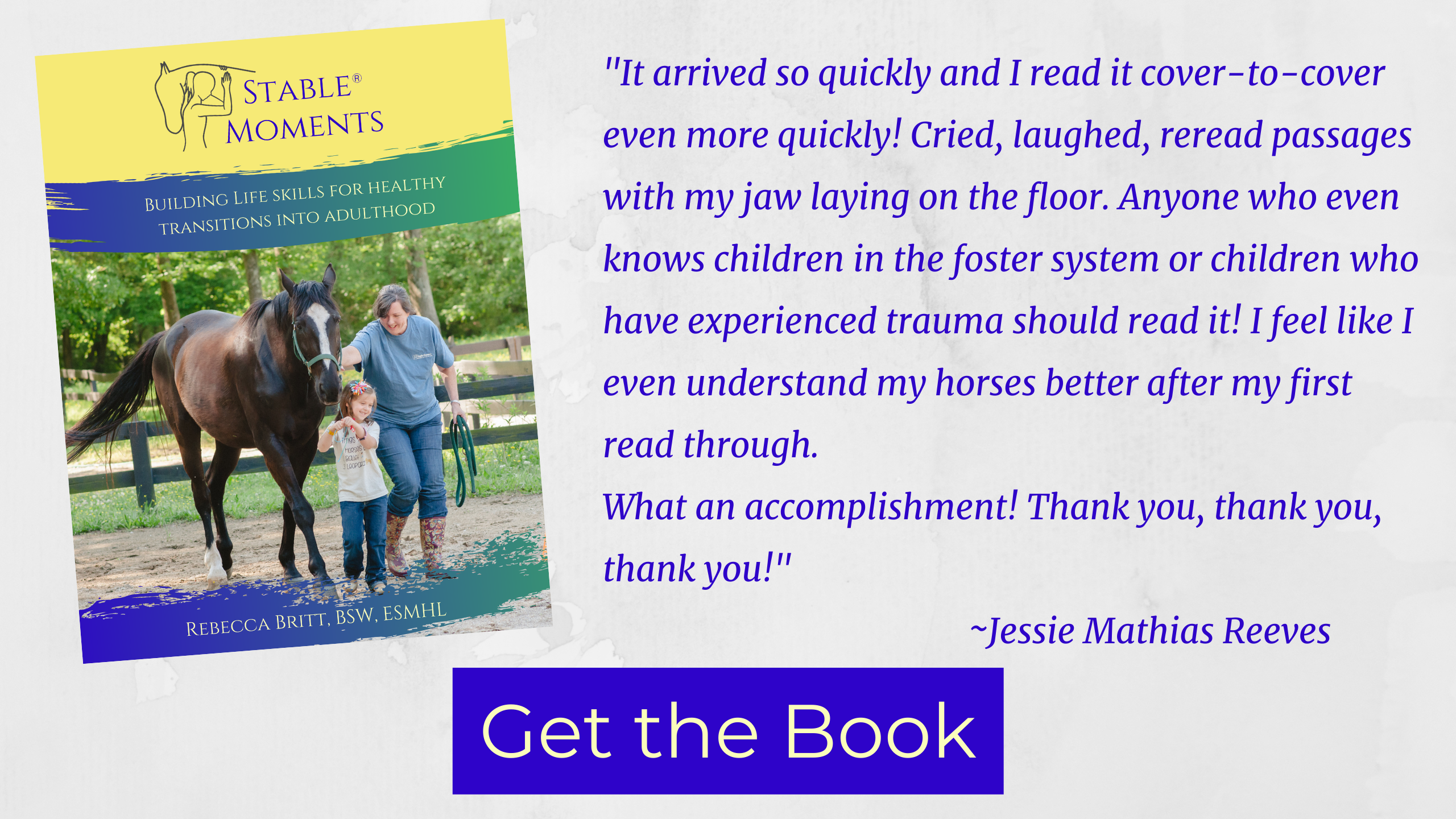Dealing with Lying
Apr 22, 2021One behavioral response to childhood trauma is lying. Many foster and adoptive parents report lying as being a major problem with their children, and it is important we validate the parents while also providing a trauma-informed lens and a non-shaming, therapeutic intervention.

First of all, I like to reframe this challenge behavior. Rather than say a child is a liar, or lies I may reframe it as, "Aiden struggles to understand the difference between fact or fiction and tells stories that aren't based in reality." One way in which we can approach a child with this particular challenge is by playing the game "fact or fiction".
Fact or fiction looks like this....sit with the child and ask her to describe what she sees. Let's say she's looking out at a herd of horses - you can say, "tell me what you see."
The child may describe it exactly how it is, but she also may add details that aren't really there. For example, "There is a black horse and a white horse and they are mad because nobody gave them any food today."
Then you use this opportunity to get curious. "Oh wow I see the black horse and the white horse, how do you know they're mad?" Is that fact or fiction?"
Remember, kids with trauma have had to fill in a lot of blanks. They may be telling you about their story by describing what they think is happening. In the above scenario, being mad because there is no food, may be a very real memory for this child and they're communicating it by telling a story about the horses.
You can build the foundation for fact or fiction simply by sitting and having the child describe anything. Show them that what is a fact. "This is a horse," or "this is a brush". At the point that the child adds something onto it, like "this is a brush you got for 5 dollars at the store," you can respond, "oh, how do you know where the brush came from? Is that fact or fiction?"
It is also important to let the child have time to tell stories/fantasies, as long as they understand it is fiction. You can build relationship and their understanding of fiction by asking them to imagine "what do you think might happen," or "what do you think they're thinking?"
I once had adoptive parents tell me "he keeps saying he used to have a cat, in his biological home, and he didn't. We know he didn't have one."
It can be really detrimental to tell a child they are lying and cut off further exploration of what they are trying to communicate. In this case the child would say, "I used to have a cat that protected me."
A therapeutic response would be, "wow, that must have been really nice to have a cat that protected you, do you miss him?" This validates what he is saying, builds trust and keeps the conversation going.
What we knew about this child was he was often locked in a closet and beaten by his mom's boyfriend. He may wish he had a cat that protected him, and for all we know he created an imaginary cat that kept him company in that closet. Validate his feelings and that cat. Let him know it is normal to want to feel protected and that you are so happy he had a protective cat.
In another instance I had a child that told stories about EVERYTHING. She would say "I fixed 24 computers today at school, I'm exhausted."
I would respond, "24 computers! Woah, they shouldn't have students doing all of that, are you sure it was 24 computers?"
She would say, "well, it felt like 24."
By the time we were done discovering what was fact and fiction we came to reveal she actually put batteries in one computer mouse.
The main thing to remember is that we must hold a non-punitive frame and these discussions need to remain curious and exploratory. There shouldn't be a negative tone when asking, "is that fact or fiction?" It should be a curious tone. We shouldn't shame a child for fabrications by asking, "is this another one of your stories?" or cutting off communication by saying, "yeah right, that didn't happen." The goal is to keep the conversation going. Understand this is how the child has learned to communicate their experiences, perception, and reality. It is our job to help them sort through that. So, try to see every fiction as an opportunity for discovery.

One child. One hour a week. One life changed.
Learn how to launch a program today.
Get new activities and trauma tidbits straight to your inbox!
We hate SPAM. We will never sell your information, for any reason.


